
- How it Works
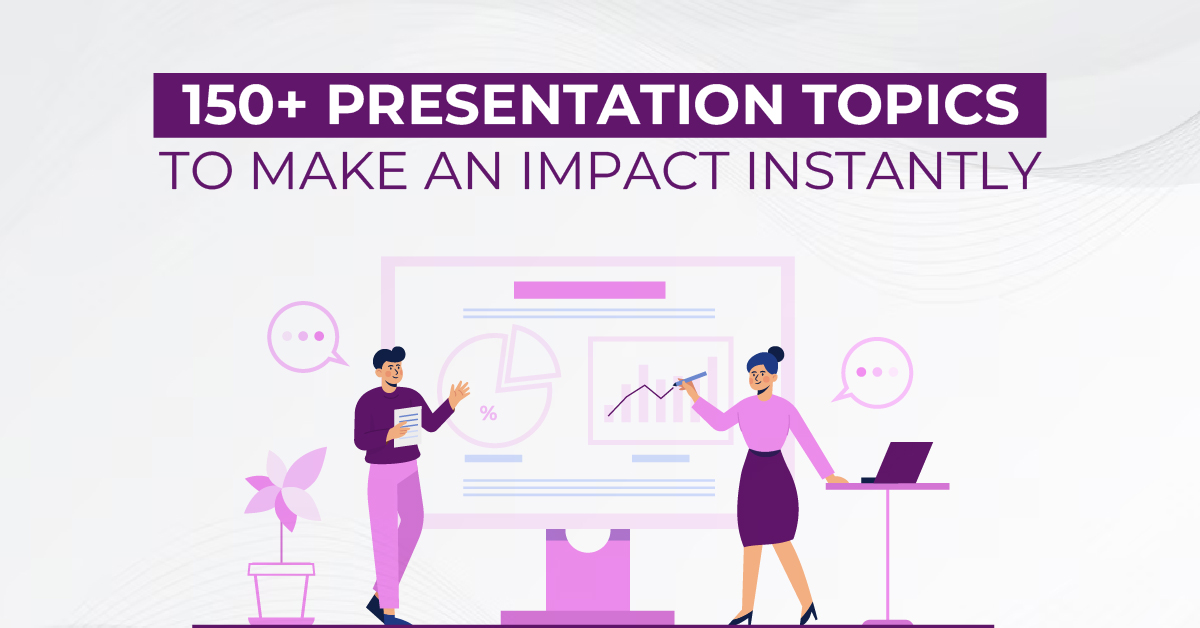

150+ Presentation Topics To Make an Impact Instantly
Presentations
Picture Yourself as the Star of a Presentation.
To really shine, you need a topic that grabs everyone’s attention. It’s more than just speaking well or having cool slides; it all starts with a topic that makes your audience curious.
Imagine standing in front of a group, not just sharing facts, but telling a story that keeps everyone interested. Presentations aren’t only about work or school; they’re a chance to be creative and make things interesting.
Every day, there are 50,000 presentations happening. They’re not all serious business or school stuff; some are about fun and quirky things like a duck on a tricycle or a dog wearing glasses. It’s surprising, right?
Still, half of people get bored during presentations. That’s why it’s crucial to make them exciting. That’s where our ideas come in—over 150 of them! And here’s the cool part: these ideas aren’t just for offices or classrooms; they’re for any time you want to share something in a fun way.
So, get ready to explore 150+ presentation ideas that will help you make an impact instantly.
How to Choose the Best Presentation Topic: Step-by-Step Process
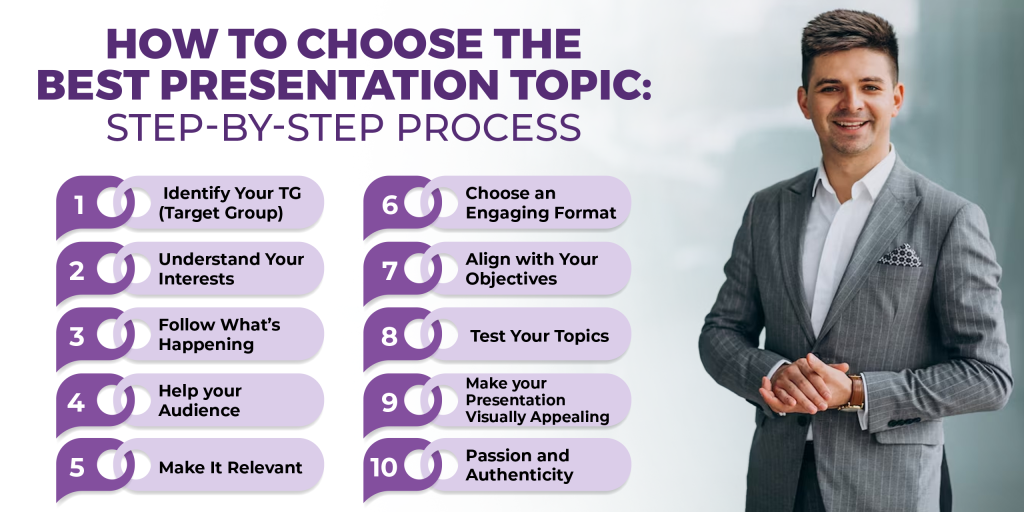
Picking the right presentation topic is like winning half the battle before you even begin. After selecting your topic, you’ll focus on content creation and presentation design. If you need help with presentation designs, consider Design Shifu , offering dedicated designers for your needs. You get unlimited designs for a flat monthly fee, which includes not only presentation designs but also services like infographics, social media designs, logo design, etc. Now, back to the topic selection. You need to strike a balance between creativity and relevance to make an impact on the right audience. Here’s a step-by-step guide to help you choose a compelling topic:
How : Conduct surveys or interviews to understand your audience’s interests, needs, and knowledge level. Example : For a group of professionals, consider topics related to their industry trends or challenges.
How : Reflect on your strengths, experiences, and knowledge areas. Example : With a digital marketing background, a topic like Effective Social Media Strategies for Business Growth might be ideal.
How : Stay updated on current events, industry trends, and popular discussions. Example : In technology, a presentation on The Future of Artificial Intelligence in Everyday Life can be timely and interesting.
How : Identify challenges your audience faces and offer solutions. Example : For entrepreneurs, Overcoming Common Startup Challenges can be highly relevant.
How : Relate your topic to the audience’s daily lives or work. Example : A presentation on Time Management Hacks for Busy Professionals can be relatable and valuable.
How : Consider using a storytelling approach, case studies, or interactive elements. Example : Instead of Benefits of Healthy Living, structure it as a personal journey with before-and-after anecdotes.
How : Clarify your presentation’s purpose (educate, persuade, entertain) and choose a topic that aligns. Example : For inspiration, Unleashing Creativity in the Workplace could be impactful.
How : Pitch your topic ideas to a small group or colleagues for feedback. Example : Present brief overviews of two potential topics and ask for input on which generates more interest.
How : Incorporate visuals to enhance your presentation or get help from presentation design experts like Design Shifu . Example : A presentation on The Power of Data Visualization can include compelling charts and graphics.
How : Choose a topic you are genuinely passionate about. Example : If passionate about environmental issues, a presentation on Sustainable Practices in Everyday Life will be engaging and authentic.
Remember to tailor these tips to your specific context, and feel free to combine multiple elements to create a unique and impactful presentation topic that resonates with your audience.
General Presentation Topic Ideas for 2024

- The Future of Virtual Reality in Education
- The Psychology of Decision-Making: Unraveling the Influences
- Sustainable Fashion: Balancing Style and Ethics
- Blockchain Beyond Cryptocurrency: Real-World Applications
- The Art of Storytelling in Marketing: Creating Lasting Impressions
- The Impact of Social Media on Mental Health
- Innovative Approaches to Urban Planning for a Sustainable Future
- Biohacking: Enhancing Human Performance through Technology
- The Rise of Remote Work: Challenges and Opportunities
- Exploring the Intersection of Art and Artificial Intelligence
Leadership Topic Ideas for Presentation

- Servant Leadership: A Paradigm Shift in Management
- Leading with Empathy in the Corporate World
- Adaptive Leadership in Times of Uncertainty
- The Role of Emotional Intelligence in Effective Leadership
- Leadership Lessons from Unlikely Sources: Animals, Nature, and Beyond
- Fostering a Culture of Innovation: Leadership Strategies
- The Power of Authentic Leadership in Building Trust
- Cross-Cultural Leadership: Navigating Global Teams
- Resilient Leadership: Bouncing Back from Setbacks
- Balancing Confidence and Humility: The Art of Humble Leadership
Business Communication Topic Ideas for Presentation

- Non-verbal Communication in the Digital Age
- Crisis Communication: Strategies for Effective Response
- Navigating Difficult Conversations in the Workplace
- The Influence of Language on Business Negotiations
- The Art of Persuasion: Building Convincing Arguments
- Digital Etiquette: Navigating Professionalism Online
- The Role of Empathy in Customer Communication
- Building a Strong Personal Brand through Communication
- Overcoming Communication Barriers in Diverse Teams
- Humor in Business Communication: When and How to Use It
Presentation Topic Ideas for Controversial Issues

- The Ethics of Genetic Engineering: Navigating the CRISPR Era
- Exploring Both Sides: The Controversy of Universal Basic Income
- The Debate on Privacy vs. National Security in the Digital Age
- The Morality of Artificial Intelligence: Can Machines Have Ethics?
- The Role of Government in Regulating Social Media: Striking the Right Balance
- Medical Marijuana: Bridging the Gap between Medicine and Recreation
- The Controversy of Fast Fashion: Environmental Impact vs. Accessibility
- The Ethics of Animal Testing: Finding Alternatives
- Free Speech in the Digital Space: Where to Draw the Line?
- The Impact of Cancel Culture: Constructive Criticism or Online Harassment?
Presentation Topics Ideas for Designing

- The Psychology of Color in Graphic Design: A Deep Dive
- User-Centered Design: Shaping Products Around People’s Needs
- Minimalism vs. Maximalism: Finding the Right Design Balance
- Designing for Accessibility: Ensuring Inclusivity in Every Interface
- The Evolution of Logo Design: From Tradition to Modern Trends
- Immersive Experiences in Web Design: Beyond the Screen
- The Art of Visual Storytelling: Engaging Audiences through Design
- Typography Trends: Balancing Readability and Aesthetics
- Environmental Design: Merging Sustainability with Aesthetics
- Augmented Reality in Design: Enhancing User Experiences
Presentation Topics Ideas for Marketing

- The Psychology of Consumer Behavior: Understanding the Purchase Decision
- Influencer Marketing: Strategies for Authentic Brand Partnerships
- The Power of Emotional Marketing: Creating Lasting Connections
- Content Marketing in the Age of Information Overload
- Ethical Marketing: Building Trust and Loyalty with Transparency
- The Future of Social Media Marketing: Emerging Platforms and Trends
- Neuromarketing: Leveraging Brain Science to Drive Engagement
- Storytelling in Branding: Crafting Compelling Narratives
- Data-Driven Marketing: Turning Analytics into Actionable Insights
- Interactive Marketing Campaigns: Engaging Audiences in the Digital Age
Presentation Topics Ideas for Entrepreneurship

- Bootstrapping vs. Funding: Choosing the Right Path for Your Startup
- The Role of Failure in Entrepreneurial Success: Embracing Setbacks
- Social Entrepreneurship: Making a Profit with a Purpose
- Innovative Business Models: Disrupting Traditional Industries
- The Art of Pitching: Capturing Investors’ Attention in 5 Minutes
- Balancing Creativity and Structure in Entrepreneurial Ventures
- Building a Sustainable Business: Environmental and Financial Considerations
- The Future of E-Commerce: Trends and Opportunities
- Cultivating a Culture of Innovation in Small Businesses
- The Gig Economy: Navigating the Rise of Freelance and Remote Work
Presentation Topic Ideas for Personal Experiences

- Turning Adversity into Strength: Lessons from Personal Challenges
- My Journey in [Specific Industry]: Lessons Learned and Insights Gained
- The Impact of Travel on Personal Growth and Perspective
- Lessons from Parenting: Applying Family Insights in Professional Life
- Overcoming Fear of Public Speaking: A Personal Triumph
- Navigating Cross-Cultural Experiences: Stories of Adaptation
- From Passion to Profession: Pursuing Your Dreams
- The Power of Vulnerability in Building Meaningful Connections
- Balancing Work and Personal Life: My Successes and Failures
- Lessons from a Hobby: How [Specific Hobby] Shaped My Outlook
Presentation Topic Ideas for Current Trends

- The Metaverse: Exploring the Next Frontier of Digital Interaction
- Decentralized Finance (DeFi): Transforming Traditional Banking Systems
- NFTs (Non-Fungible Tokens): Redefining Ownership in the Digital Age
- The Evolution of Electric Vehicles: Sustainable Transportation Trends
- The Subscription Economy: Shifting from Ownership to Access
- Health and Wellness Tech: The Rise of Wearables and Digital Health
- Micro-Moments in Marketing: Capturing Attention in Seconds
- The Influence of Remote Learning on Education: Challenges and Innovations
- Circular Economy: Reducing Waste and Promoting Sustainable Consumption
- Productizing the services in 2024
Presentation Topic Ideas for Industry Insights

- Revolutionizing Healthcare: The Impact of Telemedicine and Health Tech
- Smart Cities: Integrating Technology for Urban Development
- The Future of Aerospace: Space Tourism and Beyond
- Renewable Energy Innovations: Advancements in Solar, Wind, and Beyond
- Evolving Trends in the Fashion Industry: Sustainability and Tech Integration
- The Changing Landscape of Food Industry: Plant-Based and Lab-Grown Alternatives
- Emerging Trends in the Gaming Industry: AR, VR, and Cloud Gaming
- Transforming Agriculture: AgTech Solutions for a Sustainable Future
- The Future of Transportation: Hyperloop, Autonomous Vehicles, and Drones
- Innovations in Construction: Sustainable Materials and Smart Infrastructure
Presentation Topic Ideas for Digital Marketing
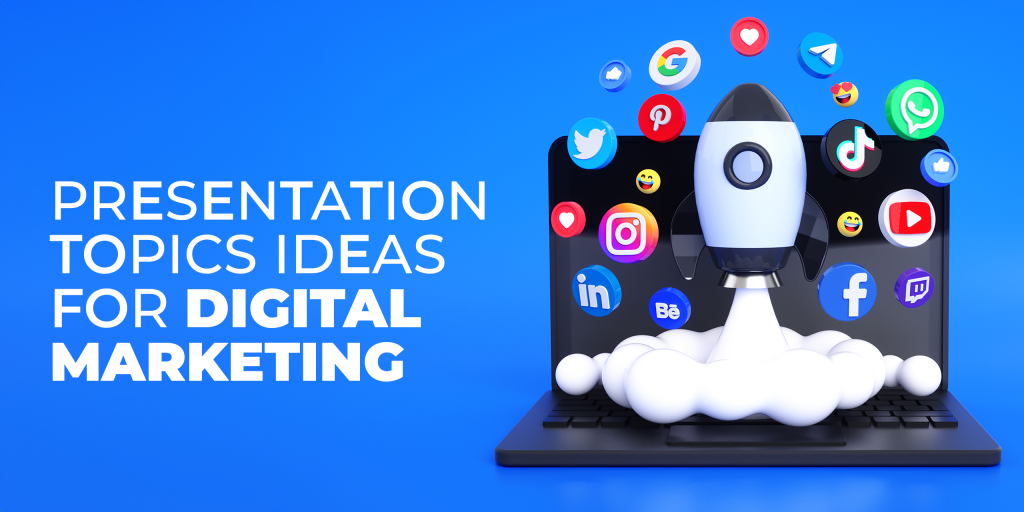
- Voice Search Optimization: Adapting to Changing Search Patterns
- The Role of Chatbots in Customer Engagement: Enhancing User Experience
- Video Marketing Strategies: Creating Compelling Visual Content
- Interactive Email Campaigns: Beyond the Click-Through Rate
- The Impact of AI on Personalizing Digital Marketing Campaigns
- Podcasting as a Marketing Tool: Building Authority and Connection
- Virtual Events and Experiences: Engaging Audiences in a Digital Landscape
- Data Privacy in Digital Marketing: Navigating Regulations and Trust
- The Power of User-Generated Content: Turning Customers into Advocates
- Inclusive Marketing: Representing Diversity in Brand Campaigns
Presentation Topic Ideas for AI (Artificial Intelligence)

- Ethical Considerations in AI: Addressing Bias and Fairness
- Explainable AI: Bridging the Gap Between Complexity and Understanding
- AI in Healthcare: Diagnosing, Treating, and Preventing Diseases
- The Role of AI in Climate Change: From Prediction to Mitigation
- AI and Creativity: Exploring the Intersection of Technology and Art
- AI in Education: Personalized Learning and Classroom Integration
- Robotics and AI in Manufacturing: Transforming Production Processes
- AI-Enhanced Cybersecurity: Protecting Against Evolving Threats
- Natural Language Processing: Breaking Barriers in Human-Computer Interaction
- AI for Social Good: Solving Global Challenges with Technology
Presentation Topic Ideas for Sales Consulting

- Consultative Selling: Building Relationships and Adding Value
- Sales Psychology: Understanding Customer Motivations and Objections
- Adapting to the Digital Sales Landscape: Strategies for Online Selling
- The Art of Negotiation: Techniques for Successful Deal-Making
- Sales Automation: Streamlining Processes for Efficiency and Effectiveness
- Account-Based Selling: Tailoring Strategies for Targeted Clientele
- The Future of B2B Sales: Trends and Technologies Shaping the Industry
- Building a Personal Brand for Sales Success: Online and Offline
- Customer Retention Strategies: Going Beyond the Initial Sale
- Storyselling: Using Narratives to Persuade and Connect with Customers
Presentation Topic Ideas for Time Management

- The Pomodoro Technique: Boosting Productivity with Time Blocks
- Time Management for Remote Workers: Balancing Flexibility and Structure
- Eisenhower Matrix: Prioritizing Tasks for Maximum Impact
- Mindful Time Management: Incorporating Meditation and Reflection
- Time Blocking for Success: Structuring Your Day for Optimal Performance
- Effective Goal Setting: Aligning Tasks with Long-Term Objectives
- Technology and Time Management: Tools for Efficiency and Focus
- The 2-Minute Rule: Tackling Small Tasks for Immediate Progress
- Batch Processing: Streamlining Work by Grouping Similar Activities
- Time Management in Leadership: Balancing Responsibilities and Delegation
Presentation Topic Ideas for Technology

- The Evolution of Cybersecurity: Adapting to Emerging Threats
- Cloud Computing Trends: From Infrastructure to Platform as a Service
- Blockchain in Business: Beyond Cryptocurrency Applications
- The Future of Quantum Computing: Revolutionizing Data Processing
- 5G Technology: Implications for Connectivity and Innovation
- Edge Computing: Reducing Latency and Enhancing Performance
- The Role of DevOps in Streamlining Software Development and Operations
- Cybersecurity in the Internet of Things (IoT): Protecting Connected Devices
- Augmented Reality in IT: Enhancing User Experiences and Workflows
- Data Governance and Privacy: Navigating Legal and Ethical Considerations
Presentation Topics Ideas for Corporate Business Leaders

- Agile Business Models: Adapting to Rapid Change and Uncertainty
- Creating a Culture of Innovation: Strategies for Fostering Creativity
- Business Ethics in the Age of Transparency: Building Trust with Stakeholders
- The Future of Work: Redefining the Employee Experience
- Strategic Partnerships: Collaborative Approaches to Business Growth
- Globalization vs. Localization: Finding the Right Balance in Business Expansion
- Intrapreneurship: Nurturing Entrepreneurial Spirit within Large Organizations
- Crisis Management in Business: Strategies for Resilience and Recovery
- The Impact of Corporate Social Responsibility on Brand Reputation
- Business Model Innovation: Rethinking Traditional Approaches for Success
Work-Life Presentation Topic Idea s

- Remote Team Building: Strategies for Fostering Collaboration and Connection
- Embracing a Growth Mindset in the Workplace: Navigating Challenges with a Positive Perspective
- Balancing Work and Parenthood: Tips for Working Parents
- Building a Culture of Inclusivity: Creating a Supportive and Diverse Work Environment
- The Future of Flexible Work: Adapting to Changing Work Structures
- Mindful Leadership: Integrating Mindfulness Practices for Effective Management
- Navigating Workplace Conflict: Strategies for Resolution and Relationship Building
- Workplace Well-being Programs: Enhancing Employee Health and Productivity
- The Importance of Continuous Learning: Staying Relevant in a Rapidly Changing Work Environment
- Resilience in the Face of Professional Setbacks: Bouncing Back from Career Challenges
DESIGN SHIFU
Read design shifu's articles and profile., privacy overview.
120 Presentation Topic Ideas Help You Hook Your Audience
Updated: October 07, 2024
Published: July 27, 2023
Cooking is easy. The puzzle is figuring out what to eat. As soon as you know that, you can get started. The same holds for presentations. The sooner you can whip up a good, informative, and catchy topic, the easier the rest of the process becomes.

Pick a good topic that resonates with you and your audience to set a strong foundation. But select the wrong topic, and it becomes difficult to connect with your audience, find mutual interests, or hold their attention.
So, let’s learn how to develop thought-provoking and relevant topics for your presentations. You’ll also find some best practices to make your presentation memorable.

10 Free PowerPoint Templates
Download ten free PowerPoint templates for a better presentation.
- Creative templates.
- Data-driven templates.
- Professional templates.
Download Free
All fields are required.
You're all set!
Click this link to access this resource at any time.
Table of Contents
How to Choose a Great Presentation Topic in 5 Steps
120 presentation topic ideas, 5 presentation tips.
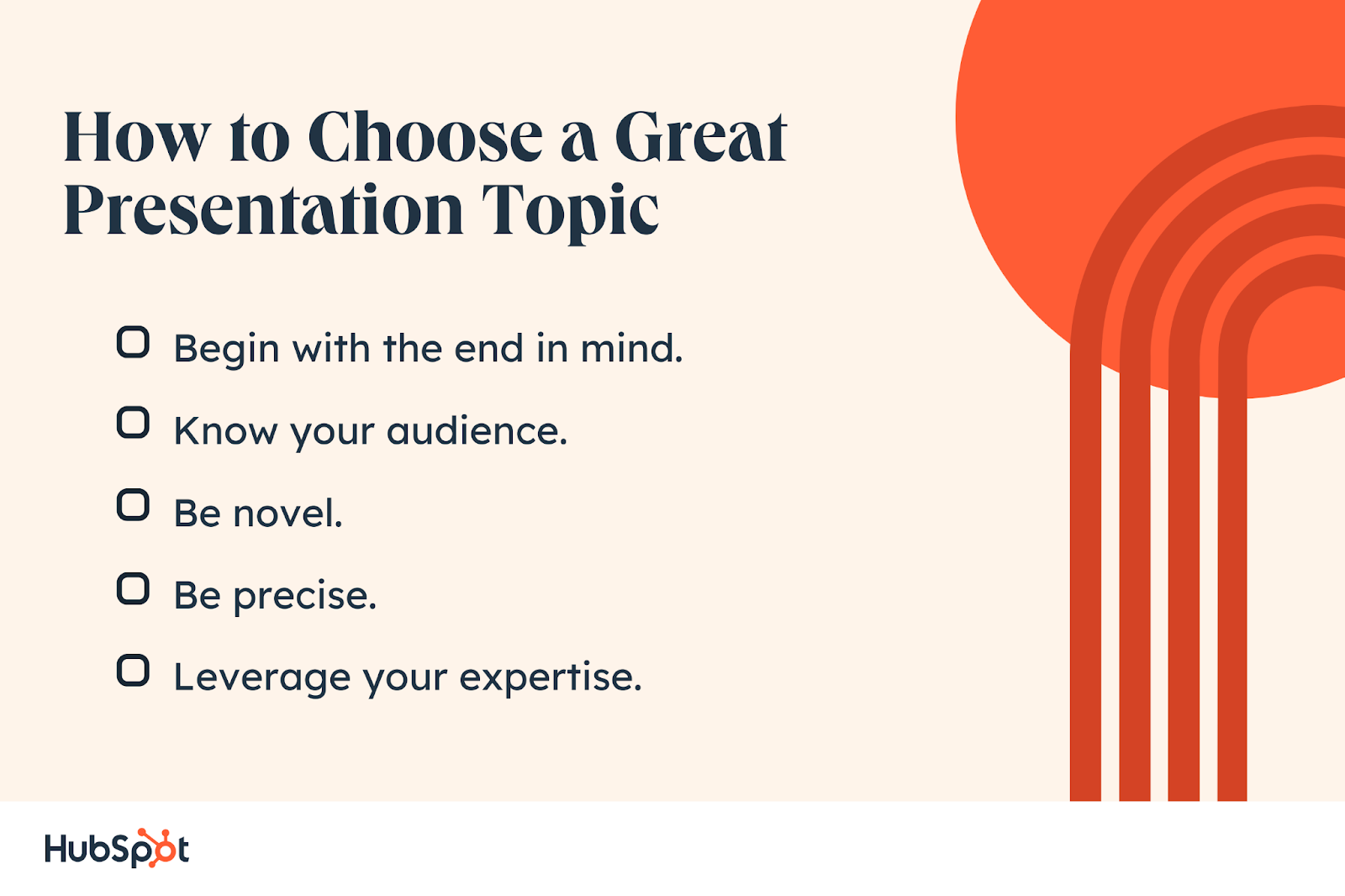
Free Presentation & Public Speaking Kit
Everything you need to become more comfortable and effective during your next presentation, including:
- Free Guide on Best Practices
- PowerPoint Presentation Templates
- Video Examples of Great Speakers
Presentation Topic Ideas for Industry Insights
- How new AI technologies are changing the industry: 5 examples
- Six key trends and industry forecasts for the future
- How to overcome these 10 challenges to succeed?
- Measuring and optimizing organizational marketing efforts using AI
- Using predictive analytics to extract key marketing insights
- 13 strategies to increase customer loyalty and retention
- Improve your online visibility and traffic: 15 tips from LinkedIn gurus
- Seven ways to create engaging video content for your company
- Five ways for businesses to create a strong social media presence
- Which social media channels are best for your brand?
- Is AI revolutionizing the retail industry?
- Digital learning and the future of traditional learning systems
Presentation Topic Ideas for Digital Marketing
- The next big thing in digital marketing unlocked
- The art of storytelling in marketing: 23 businesses that kill it
- Benefits of cross-channel marketing for software development companies
- Voice search and its impact on digital marketing in 2024
- Maximizing ROI for your startup marketing: 3 underestimated tactics
- Changes in consumer behavior: Reasons and implications
- Importance of personalization in digital marketing
- 10 Emerging marketing trends and technologies
- Designing an effective mobile strategy for your business
- Importance of infographics in content marketing: HubSpot’s case study
- Creating effective marketing funnels for health products
- The power of user-generated content for companies
Presentation Topic Ideas for AI
- Six top stories about AI in 2023
- Five weird, but true, facts about AI
- What these three business experts are saying about AI
- Three shocking ways AI can make you a better marketer
- The dark side of AI
- Why has Elon Musk called to pause new AI research?
- Five AI tools every marketer needs
- AI and Big Data: Changing the landscape of modern business
- Which jobs will AI actually replace?
- Why does Bill Gates love AI?
- AI in human resources: Recruiting and talent management
- The Ethics of AI: Balancing business interests and societal impacts

Presentation Topic Ideas for Sales
- Cold calls: Unethical tactics and grey areas
- Sales: Expectations vs. Reality
- Sales prospecting made simpler with AI
- Sales calls: Do’s, Don’ts, and Musts
- Six sales strategies you need to throw out the window
- Five skills every salesperson needs to develop
- Building long-lasting relationships with customers using these three tried and tested methods
- Dealing with rejections: Five ways and one bonus tip
- Patient waiting and seven ways to deal with it
- 13 effective sales strategies for building relationships and closing deals
- Developing effective sales training programs for new employees
- 20 effective sales communication strategies
Presentation Topic Ideas for Time Management
- How to achieve an ideal work-life balance for remote workers
- How much time should you ideally spend networking on LinkedIn?
- How to effectively delegate tasks
- Buy back your time: Ways and benefits
- Six business principles of time management
- How to effectively plan ahead? Three practices you can start today
- 15 ways to improve personal efficiency and productivity
- The five steps of the Pomodoro Technique
- Goal setting and prioritization: For IT start-ups
- Nine best multitasking strategies of insanely successful businessmen
- Time management for busy professionals: Where to start?
- Eight ways to avoid procrastination you can start with tomorrow
Presentation Topic Ideas for IT
- Advantages and risks of adopting cloud software
- Open-source software: seven best practices
- Machine learning: Pros and cons for marketing
- How to create user-friendly interfaces for software and websites
- The role of IT in digital transformation
- The Internet of Things: five opportunities for businesses and consumers
- Six ways to protect your digital assets
- Seven benefits and three risks of moving to the cloud
- How does Big Data work?
- Best strategies to protect organizational data: five tried and tested techniques
- Technology and its impact on society and culture
- Mobile device management: Where to start?
Presentation Topics Ideas for Business
- Optimizing collaborations to save time across all departments
- Eight time management tools and apps for businesses
- 12 common skills of successful businessmen
- 10 tips and techniques for a successful marketing strategy
- Harnessing the power of influencer marketing
- Allocating a marketing budget to maximize ROI in five steps
- Five manufacturing techniques to minimize costs
- Understanding ethical issues in business and marketing
- 10 ways to minimize your company’s carbon footprint
- Three old business models making a comeback
- Seven ways Google developed a strong company culture
- 12 strategies for building a sustainable and responsible business in 2023
The best presentation topics always put their audience first, offer direct solutions, and fill in some knowledge gaps. But there’s more.
Don’t think of your presentation as a mere speech — it’s a ride you’ll take your audience on. There should be highs, lows, and revelations with a bang for an ending.
That being said, use these five tips to ace your presentation.
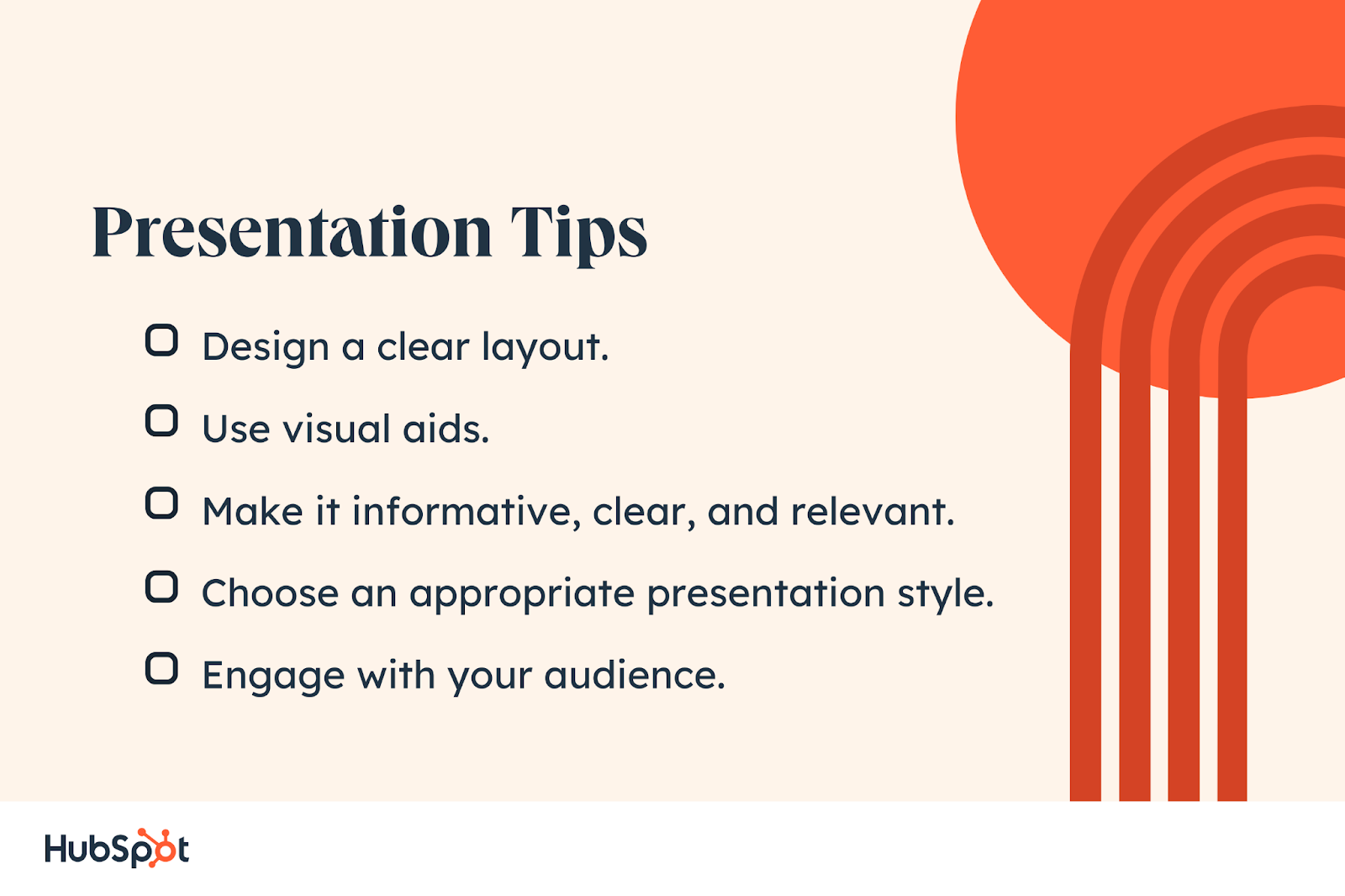
4. Choose an appropriate presentation style.
There are many ways to present a topic. Your personality, the topic at hand, and your audience’s personas will help you determine which style would best fit you and your audience.
Select a presentation style that will communicate the main idea clearly and have a lasting impact on your audience.
For instance, explore a freeform style presenter by Sir Ken Robinson.
5. Engage with your audience.
Work on your presentation skills to make a strong connection with your audience, get through to them and leave a mark.
Think of the presenter as the link between the topic and the audience. A strong or a weak presenter can make a difference between a presentation being a thriving success or a boring failure.
Hone your skills by engaging and interacting with your audience. Make them feel like a part of the presentation and not just spectators. 70% of marketers have found presentations with interactive content to be more effective than those without.
Here are a few ways you can make your presentation interactive:
- Start your speech with uncommon questions to your audience. Involve them from the get-go, like ask to raise their hands if X.
- Make eye contact to build credibility and show confidence. Don’t stare at your slides or notes. Smile occasionally and talk to the audience directly.
- Have an active and confident body language. Don’t stand in the same place the entire time. Move around the stage.
- Don’t be monotonous. Speak as you would to a colleague — with enthusiasm.
- Ask close-ended questions in between to keep the audience engaged without losing time. Address them using their names to keep things interesting.
- Share personal experiences and stories that your audience will find fascinating and relatable.
- Practice thoroughly before you present so you’re fluent with the material and delivery.
- Energy and excitement can be quite contagious. Make sure you exude enough to spread some to your audience.
Feeling Inspired Yet?
Now you have all the right ingredients for choosing amazing topics and a hundred ideas to drive inspiration from. So, go ahead and start cooking presentations that will blow your audience away.
Don’t forget to choose a super-relevant topic and add meaty information. Do it with excitement to make it enjoyable for you and your audience. Best of luck!
![professional communication lab presentation topics Blog - Beautiful PowerPoint Presentation Template [List-Based]](https://no-cache.hubspot.com/cta/default/53/013286c0-2cc2-45f8-a6db-c71dad0835b8.png)
Don't forget to share this post!
Related articles.
![professional communication lab presentation topics How to Create an Infographic in Under an Hour — the 2024 Guide [+ Free Templates]](https://www.hubspot.com/hubfs/Make-infographic-hero%20%28598%20%C3%97%20398%20px%29.jpg)
How to Create an Infographic in Under an Hour — the 2024 Guide [+ Free Templates]
![professional communication lab presentation topics 20 Great Examples of PowerPoint Presentation Design [+ Templates]](https://www.hubspot.com/hubfs/powerpoint-presentation-examples.webp)
20 Great Examples of PowerPoint Presentation Design [+ Templates]
![professional communication lab presentation topics How to Create the Best PowerPoint Presentations [Examples & Templates]](https://knowledge.hubspot.com/hubfs/powerpoint.webp)
How to Create the Best PowerPoint Presentations [Examples & Templates]
![professional communication lab presentation topics 17 PowerPoint Presentation Tips From Pro Presenters [+ Templates]](https://www.hubspot.com/hubfs/powerpoint-design-tricks_7.webp)
17 PowerPoint Presentation Tips From Pro Presenters [+ Templates]
![professional communication lab presentation topics How to Write an Ecommerce Business Plan [Examples & Template]](https://www.hubspot.com/hubfs/ecommerce%20business%20plan.png)
How to Write an Ecommerce Business Plan [Examples & Template]

Get Buyers to Do What You Want: The Power of Temptation Bundling in Sales

How to Create an Engaging 5-Minute Presentation
![professional communication lab presentation topics How to Start a Presentation [+ Examples]](https://www.hubspot.com/hubfs/how-to-start-presenting.webp)
How to Start a Presentation [+ Examples]

The Presenter's Guide to Nailing Your Next PowerPoint
![professional communication lab presentation topics How to Create a Stunning Presentation Cover Page [+ Examples]](https://www.hubspot.com/hubfs/presentation-cover-page_3.webp)
How to Create a Stunning Presentation Cover Page [+ Examples]
The weekly email to help take your career to the next level. No fluff, only first-hand expert advice & useful marketing trends.
Must enter a valid email
We're committed to your privacy. HubSpot uses the information you provide to us to contact you about our relevant content, products, and services. You may unsubscribe from these communications at any time. For more information, check out our privacy policy .
This form is protected by reCAPTCHA and the Google Privacy Policy and Terms of Service apply.
You've been subscribed
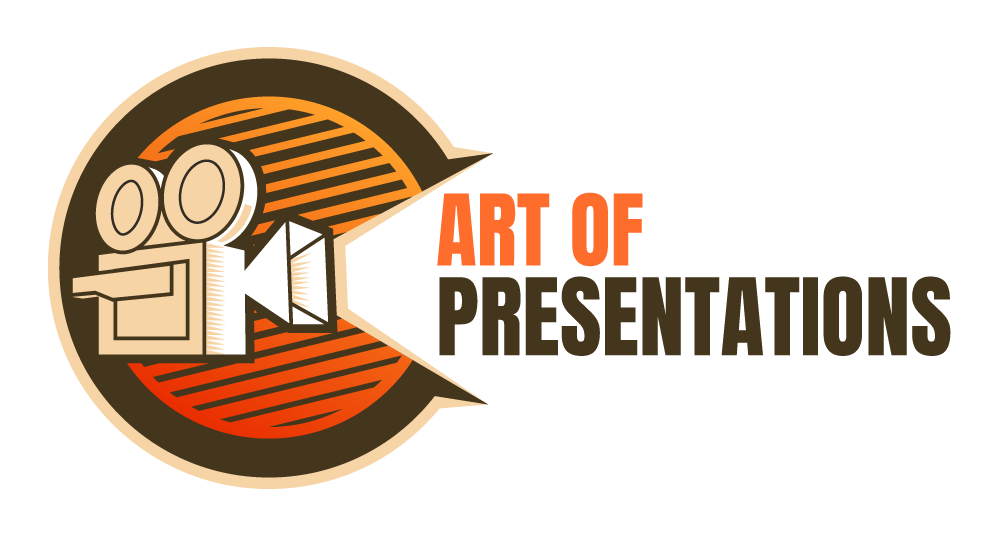
15 Useful Presentation Topics for Business Communication
By: Author Shrot Katewa
If you are on this page, we know that you are a change maker in your business! We know that you understand the role that business communication plays in any professional setup. So, we want to give our best to enable you to make this change happen. Today, we want to talk about 15 useful topics for Business Communication that you can present in your organisation and empower others.
But first, let’s start with What is business communication? Business communication, in rudimentary terms, can be defined as a form of formal communication among professionals who are working for a common business objective.
While communication, in general, is important for any business to survive and thrive, in order to achieve success in business and for its respective teams, business communication becomes absolutely critical as success can’t be achieved without interacting with each other and having a common goal and objective in mind.
It is important to keep in mind that business communication is not just between your subordinates or your boss, you need to consider all stakeholders associated with your business. It can be one to many, one on one or many to one. Furthermore, it can involve various forms for communication medium such as email, telephone, intranet, presentations, video, social media, magazines, meetings, interviews, discussions etc.
So, what are some of the topics for business communication that you can give a presentation for your team? Let’s have a look –
A Quick Note Before We Begin – if you want to make jaw-dropping presentations, I would recommend using one of these Presentation Designs . The best part is – it is only $16.5 a month, but you get to download and use as many presentation designs as you like! I personally use it from time-to-time, and it makes my task of making beautiful presentations really quick and easy!
1. How to communicate business decisions during a crisis
Crisis management is one of the key moments when clear and coherent communication is of utmost importance. Any lack of communication or miscommunication during a crisis can lead to tragic circumstances for the business. A great topic for teams and companies to debate and create guidelines and response mechanisms to combat such issues.
2. Importance of Intranet
Intranet is a perfect platform to communicate business news and updates. As an internal business communication tool, it provides opportunities for information to be shared with the employees. Its importance can not be doubted. Taking up a topic like this one can help your team and colleagues truly understand the purpose behind deploying and managing the intranet within organisations.
3. Townhall and its benefits
This is often a forgotten mode of communication in many organisations. In today’s modern day of social media and other platforms, it is easy to forget the impact that a townhall can have on the employees of an organisation. An interesting presentation topic for business communication.
4. How to give an effective feedback
Giving feedback to your colleagues or team members can constitute one of the most essential types of communication as it ensures that the team has a healthy work relationship and there is no hindrance on the journey of achieving the common goal of the organisation. The best part about such a topic is that it is applicable across divisions and teams and can be useful irrespective for the background of your audience.
5. How to crack a business deal
Every organisation needs clients. Converting a potential lead into a successful client needs a lot more than business communication. However, understanding the need of your audience and communicating the right message, product or service that fulfils the requirement plays a key role in cracking a deal. It serves as a great topic for discussion on the importance of business communication among the sales team.
6. Managing relationship with you boss
There are many among us who don’t like their boss. Trust me, it is not uncommon! 🙂 But, part of the reason for the failure of a healthy relationship with your boss is business communication or the lack of it. A topic like this may not only enable you to come across colleagues who may resonate with your ideas, but also help improve relationships of your colleagues with their respective bosses.
7. Email Etiquettes
Let’s face it – email is the most common mode of communication among all employees in an organisation. Thus, it is of utmost importance that messages sent over an email communicate what was intended and not anything else. It is a great business communication presentation topic especially for the new employees who have recently joined your office.
8. How to communicate with your peers
Another important topic for most business settings. It is important for the employees to really understand the company’s policy on the work environment and communication among the employees. Having a presentation session on this business topic can be really helpful in setting up a healthy work environment for your employees.
9. Role of millennials in your brand success
I view this as a very interesting presentation topic for business communication. Why? Because, the role of millennials in the success of a brand is often not completely understood. With the onset of social media, millennials are finding it more and more easy to voice their opinion and impact a brand. This topic could serve as an interesting business communication presentation.
10. Is the newsletter dead?
In this modern age where more and more information is consumed over digital mediums and the attention span of your audience is only diminishing, the importance of newsletter can form a good topic for not just a business presentation, but also include an interesting debate as an activity post your presentation.
11. Tips for successful business relationships with customers
Having a successful business relationship with customers goes way beyond just converting a potential lead into a customer. This is often a part of the business that gets missed out. Thus, considering this topic for your business communication presentation can be really fruitful.
12. Role of influencers for building a brand –
Social media has played a pivotal role of distributing the power to influence others from celebrities to individuals known as influencers. The role of an influencer is often not completely understood even though there are several influencers who now have the authority to influence your brand both positively and negatively. The lack of this understanding can impact the communication strategy of your brand. Thus, a very carefully curated session with this presentation topic for business communication can be highly effective in reaching success and achieving the goals of your business.
13. Brand guidelines and its importance
When we are talking about business communication, brand guidelines is a perfect topic as it sets the method of ensuring that the messaging and communication is consistent irrespective of which employee is engaging with a stakeholder outside your organisation. It is also really important that all employees understand the importance of consistent messaging.
14. Impact of social media for employees
We’ve come across several organisations that are struggling with leveraging their own employees across social media to create an awesome brand image. Furthermore, the impact of identifying the opportunities to leverage your employees towards a focused campaign is barely understood. Thus, considering this topic for your business communication presentation can be an eye opener for many within your organisation including business leaders.
15. Significance of company blogs
If you are a business communicator, you surely understand that each medium of communication is important as it often has its own pros and cons. Many believe that a company blog is turning out to be irrelevant. However, if a company blog is created with a correct strategy that is specific to a business, it can not just be successful but also push across customers. Taking up this presentation topic for business communication can, again, be a very interesting one. It may lead to an open debate and also help to work around and build upon your company’s existing communication strategy.
So there you have it. There is a lot to talk about when we need to share something useful on business communication. I would like you to consider these topics only as a conversation starter and build up from the brief pointers that we have mentioned. I also hope that you find the above topics really something that you can use and is effective in your business setting. Do let us know your thoughts in the comments below.
Our goal on this blog is to create content that helps YOU create fantastic presentations; especially if you have never been a designer. We’ve started our blog with non-designers in mind, and we have got some amazing content on our site to help YOU design better.
If you have any topics in mind that you would want us to write about, be sure to drop us a comment below. In case you need us to work with you and improve the design of your presentation, write to us on [email protected] . Our team will be happy to help you with your requirements.
Lastly, your contribution can make this world a better place for presentations . All you have to do is simply share this blog in your network and help other fellow non-designers with their designs!

IMAGES
VIDEO